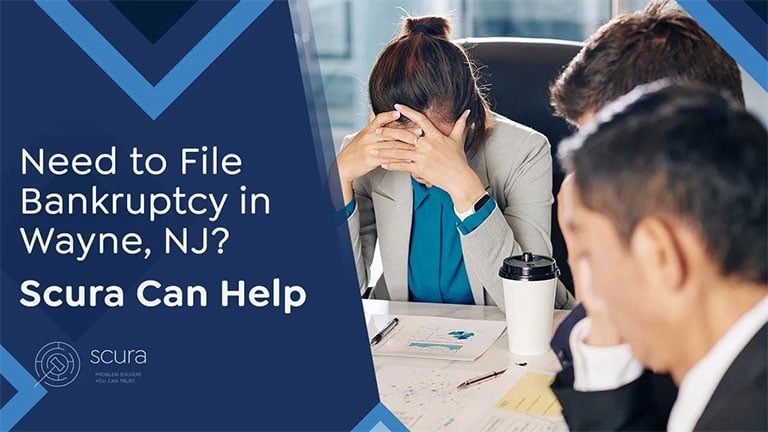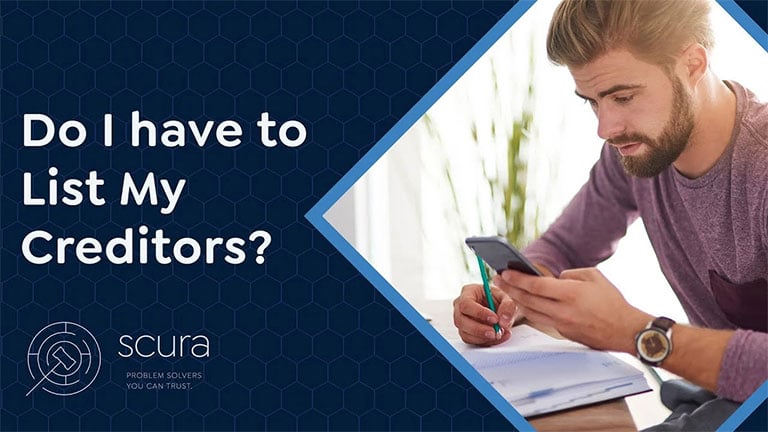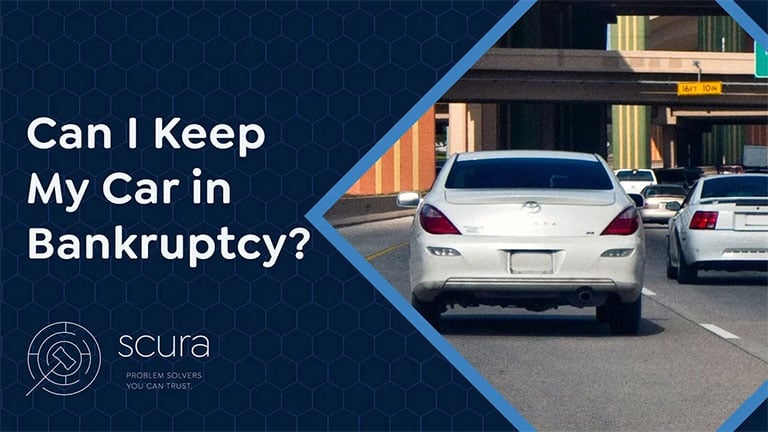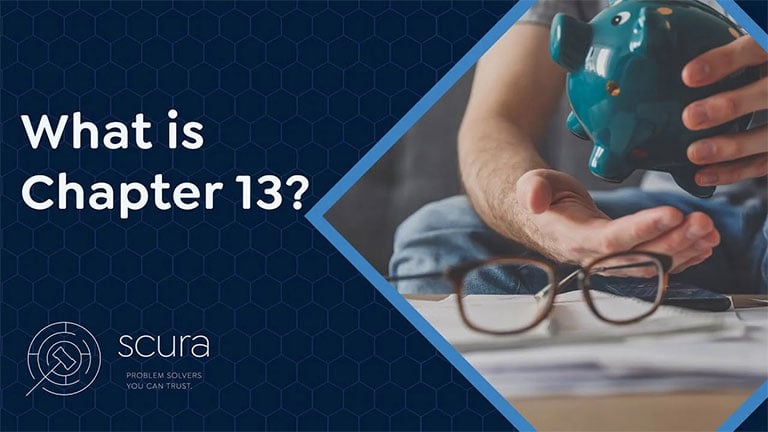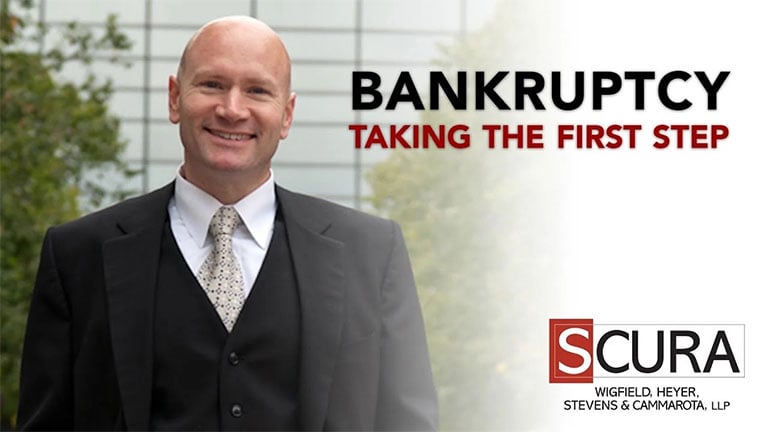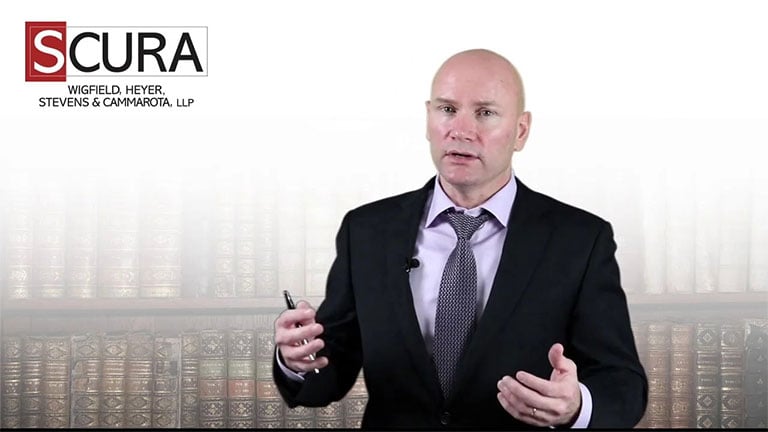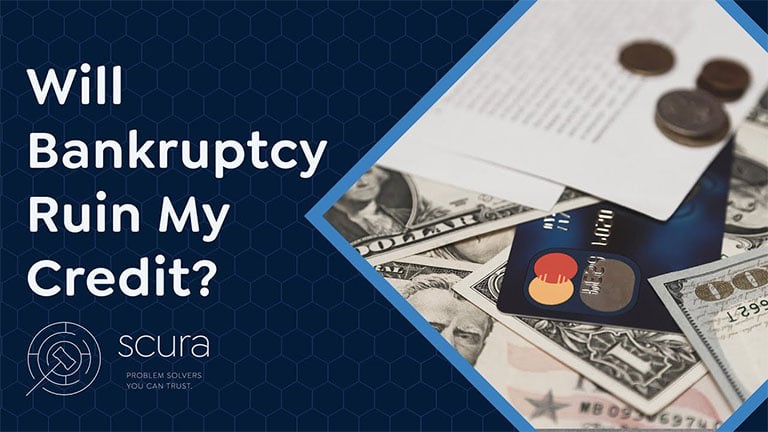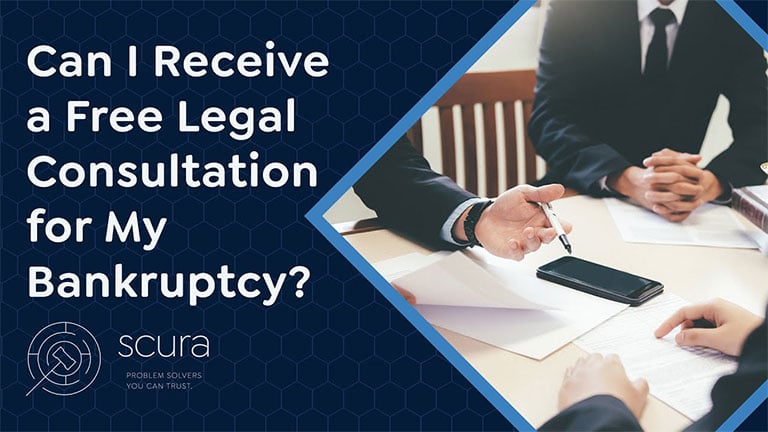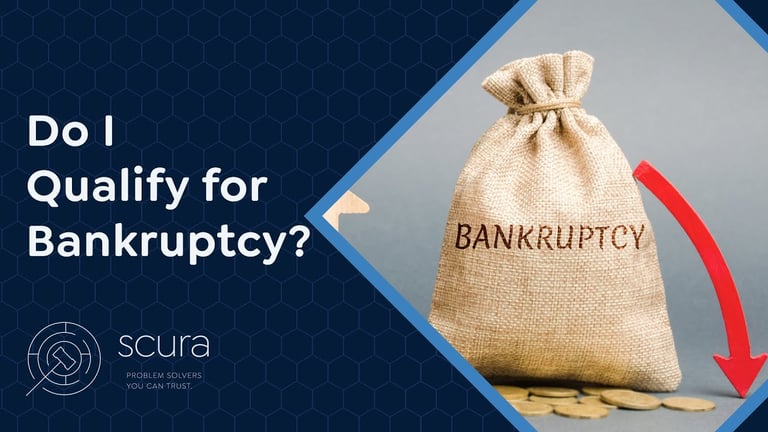A Comprehensive Guide to Filing Bankruptcy in New Jersey
Filing NJ Bankruptcy Can Get You Out of Debt
Filing NJ Bankruptcy Can Get You Out of Debt
For many of us, debt can creep up very quickly for a number of unexpected reasons. Unforeseen medical bills, mortgage payments and car loans are significant payments that can add up over time and make resolving debt a very daunting process. With a structured plan and a trusted lawyer on your side, resolving your debt through bankruptcy can help get rid of lingering debts and payments.
Bankruptcy can seem like a scary option for anyone struggling with debt. However, in a lot of cases, bankruptcy can be a viable option to restructure and reorganize your debt in a fashion that make debt payments more manageable between the debtor and creditor. In situations like these, it is important to have a bankruptcy lawyer that you can trust to guide you through this unplanned, financially-difficult situation.
Scura, Wigfield, Heyer, Stevens & Cammarota, LLP will work with you to determine the best direction to take for filing bankruptcy based on your situation. We work with individuals and businesses, and do Chapter 7, 11 and 13 Bankruptcies. We can advise you on the best options for filing bankruptcy in New Jersey, and unlike other firms, we handle all types of bankruptcy. Call our experts today for your personal or business bankruptcy.
Types of Bankruptcy in NJ
If you are facing financial challenges in your personal life or in your business, chances are the concept of filing bankruptcy has crossed your mind. If it has, it also makes sense that you have a lot of bankruptcy questions that need answers. Many people actually cannot answer the question “what is bankruptcy” in anything except general terms.
Understanding bankruptcy law and when it makes sense for you to consider filing bankruptcy is an important decision for your current circumstances, and also for your future. Bankruptcy allows individuals, burdened by overwhelming debt, to obtain a fresh start and wipe out dischargable debt. One of our firm's primary practice areas is representing clients in bankruptcy cases in Chapter 7, Chapter 13 and Chapter 11 under the Bankruptcy Code.
As expert attorneys in all things bankruptcy related, we are committed to providing you the best advice for your specific situation. That starts with us listening to you and understanding what brought you to this place, then continues with us educating you about the options for debt relief and answering all your bankruptcy questions.
Many people do not realize that there are several types of bankruptcy, such as Chapter 7, Chapter 11 and Chapter 13. Each has its benefits and challenges, so knowing which is the best option for your present situation as well as your future recovery can make all the difference in your life. Here at Scura, Wigfield, Heyer, Stevens & Cammarota, LLP we handle all types of bankruptcy cases, so we are able to answer your bankruptcy questions and help you make the best decision for your case.
What Is a Chapter 7 Bankruptcy?
Chapter 7 is termed the liquidation bankruptcy chapter. In a chapter 7 bankruptcy you can eliminate, wipe out or discharge most types of debt. Examples of unsecured debt that can be wiped out are credit cards and medical bills. All types of people and companies -- individuals, married couples, corporations and partnerships can all file a Chapter 7 bankruptcy if eligible.
Most Chapter 7 filers struggle monthly to keep up with their recurring obligations. They are concerned about losing utilities or keeping their home. They may use credit cards to pay for necessary expenses on a regular basis. Their monthly bills often consist of ordinary living costs (food, clothing, utilities, etc), credit card payments, student loan payments, medical payments, or some combination of these. Some Chapter 7 filers use payday loans or personal loans frequently, but not always.
Many Chapter 7 filers do not have much in the way of assets. They may be renters and own an older car, or no car at all. Some live with parents, friends, or siblings. Others have houses that do not have much equity or are in serious need of repair. One of the reasons that Chapter 7 bankruptcy works well for these individuals is that they do not have to give up large assets because they simply do not have much equity or all their assets are exempt.
Debtors must also qualify for Chapter 7 bankruptcy by going through the “means test.” If debtors do not pass this test, then they must file Chapter 13 or cannot file bankruptcy at all.
A debtor who files under Chapter 7 is entitled to retain certain assets, while the remaining assets, if any, are sold and distributed pro rata to his/her creditors in an effort to partially satisfy the debt. More often than not, a debtor under a Chapter 7 has a "No Asset Case". By filing Chapter 7, our lawyers may be able to help you:
- Eliminate your credit card debt
- Prevent car repossession
- Stop wage garnishment and tax liens
- Get your financial house in order
Stop Harassing Credit Collection Calls and Letters Immediately
Simply stated, the debtor may keep all of the property (house, car, 401K and personal property) he or she owns without having any of it liquidated. A bankruptcy under this chapter typically involves a 4 to 5 month period, at which time the debtor is fully discharged from his or her debt.
Once you file a Chapter 7, all collection activity towards you must immediately cease. All telephone calls, lawsuits, and wage garnishments will stop. Upon receiving a discharge from the Bankruptcy Court, you will no longer be obligated to pay most, if not all, of these debts.
Although a bankruptcy stays on your credit report for a ten (10) year period, there are a number of ways in which you can reestablish your credit report. Once you are discharged from your debt under the Chapter 7, you cannot file another Chapter 7 petition for a eight (8) year period.
In a Chapter 7, or liquidation case, the bankruptcy court appoints a trustee to examine the debtor's assets and divide them into exempt and nonexempt property. Exempt property is limited to a certain amount of equity in the debtor's residence, known as a homestead exemption, motor vehicle, household goods, life insurance, health aids, specified future earnings such as social security benefits and alimony, and certain other personal property.
The trustee may then sell the nonexempt property and distribute the proceeds among the unsecured creditors. Although a liquidation case can rarely help with secured debt (the secured creditor still has the right to repossess the collateral), the debtor will be discharged from the legal obligation to pay unsecured debts such as credit card debts, medical bills and utility arrearages. However, certain types of unsecured debt are allowed special treatment and cannot be discharged. These include some student loans, alimony, child support, criminal fines, and some taxes.
What is a Chapter 11 Bankruptcy?
Chapter 11 bankruptcy is often thought of as the commercial bankruptcy option for businesses, sole proprietors and partnerships seeking to restructure their debts while they liquidate assets and restructure payment plans with creditors. Individuals with more than $1 million in secured debt and $330,000 in unsecured debt may also take advantage of the provisions of Chapter 11 bankruptcy.
What Can Chapter 11 Do?
A chapter 11 bankruptcy case of a corporation (corporation as debtor) does not put the personal assets of the stockholders at risk other than the value of their investment in the company's stock.
A sole proprietorship (owner as debtor), on the other hand, does not have an identity separate and distinct from its owner(s); accordingly, a bankruptcy case involving a sole proprietorship includes both the business and personal assets of the owners-debtors. Like a corporation, a partnership exists separate and apart from its partners. In a partnership bankruptcy case (partnership as debtor), however, the partners' personal assets may, in some cases, be used to pay creditors in the bankruptcy case or the partners may, themselves, be forced to file for bankruptcy protection.
Section 1107 of the code places the debtor in possession in the position of a fiduciary, with the rights and powers of a Chapter 11 trustee, and requires the performance of all but the investigative functions and duties of a trustee. These duties are set forth in the Bankruptcy Code and Federal Rules of Bankruptcy Procedure.
Such powers and duties include accounting for property, examining and objecting to claims, and filing informational reports as required by the court and the United States trustee, such as monthly operating reports. The debtor in possession also has many of the other powers and duties of a trustee including the right, with the court's approval, to employ attorneys, accountants, appraisers, auctioneers, or other professional persons to assist the debtor during its bankruptcy case.
Other responsibilities include filing tax returns and filing such reports as are necessary or as the court orders after confirmation, such as a final accounting. The United States trustee is responsible for monitoring the compliance of the debtor in possession with the reporting requirements in a small business case. A small business case proceeds faster than a regular chapter 11 case because the court may conditionally approve a disclosure statement, subject to final approval after notice and a hearing and solicitation of votes for acceptance or rejection of the plan.
What is a Chapter 13 Bankruptcy?
Chapter 13 is a reorganization or repayment plan-type bankruptcy that allows the debtor to enter into an interest-free debt repayment plan. Typically a debtor will pay a smaller percentage of the debts over a 3 to 5 year period in the bankruptcy plan. The amount paid and the duration of the plan depends on the debtor's property, median income and expenses. Creditors are not allowed to pursue or maintain any collection activities or lawsuits during the case. If successful, these creditors will be wiped out or discharged. A Chapter 13 bankruptcy is very powerful because it provides a mechanism for debtors to prevent foreclosures and sheriff sales and stop repossessions and utility shutoffs while catching up on their secured debt.
In a Chapter 13 bankruptcy case, the debtor puts forward a plan, following the rules set forth in the bankruptcy laws, to repay all creditors over a period of time, usually from future income. A Chapter 13 case may be advantageous in that the debtor is allowed to get caught up on mortgages or car loans without the threat of foreclosure or repossession and is allowed to keep both exempt and nonexempt property. The debtor's plan is a document outlining to the bankruptcy court how the debtor proposes to pay current expenses while paying off all the old debt balances. By filing Chapter 13, you may be able to:
- Eliminate much of your credit card debt and restructure remaining payments
- Keep equity in your house and prevent mortgage foreclosure
- Keep your car
- Stop wage garnishment and tax liens
Most Chapter 13 cases are used by a person looking to save a home or real estate in a foreclosure. It gives the debtor the opportunity to either sell the home or become caught up on mortgage payments that have fallen behind. A person filing a Chapter 13 can propose a 60-month plan to cure or become current on mortgage payments. For instance, if you fell behind on $60,000 worth of mortgage payments, you could propose a plan of $1,000 a month for 60 months to bring those mortgage payments current.
In addition, in a Chapter 13 repayment plan, if you have high credit card debt and are behind on mortgage payments, depending upon your plan you may be able to pay only 5% to outstanding credit cards.
For example, if you owe $100,000 in credit card debt, you may be able to pay only $5,000 over a 60-month plan depending upon your situation. There are also trustee's commissions that can be easily calculated depending upon your plan payment. Our firm will even agree to take a portion of its legal fee through the plan of reorganization.
The debtor's property is protected from seizure from creditors, including mortgage and other lien holders, as long as the proposed payments are made. The plan generally requires monthly payments to the bankruptcy trustee over a period of three to five years. Arrangements can be made to have these payments made automatically through payroll deductions.
What Type of Bankruptcy is Best for You?
We help individuals and businesses get a fresh start from overwhelming debt obligations. Bankruptcy may or may not be the best option and our New Jersey Lawyers will take the time and advise you if bankruptcy is right for your situation. An attorney in our office will take the time to explain to you the differences between Chapter 7 Bankruptcy, Chapter 13 Bankruptcy and Chapter 11 Bankruptcy and the best option for you. Sometimes it is better to avoid bankruptcy and settle with creditors out of court. New Jersey also has an alternative to bankruptcy for businesses called an Assignment for the Benefit of Creditors and our law firm will go over this option if it fits as a potential strategy for your business. Correct advice from the very beginning is the most important factor in leading to a successful bankruptcy or out of court settlement with creditors. We have created a tool that helps you choose what chapter your file is most likely to be filed under. Click here to use ScuraSmart and find out a possible solution for your debt.
Many people do not realize that there are several types of bankruptcy, such as Chapter 7, Chapter 11 and Chapter 13. Each has its benefits and challenges, so knowing which is the best option for your present situation as well as your future financial freedom can make all the difference in your life. Here at Scura, Wigfield, Heyer, Stevens & Cammarota, LLP we handle all types of bankruptcy cases, so we are able to answer your bankruptcy questions and help you make the best decision for your case. Here is a brief look at the debt relief options available:
-
CHAPTER 7 BANKRUPTCY
What could you and your family do with a fresh start from your credit card debt and other loans? Chapter 7 bankruptcy may be the best option for helping you get out from under your burden of debt, while keeping your house and family car.
-
CHAPTER 11 BANKRUPTCY
Chapter 11 bankruptcy is often thought of as the commercial bankruptcy option for businesses, sole proprietors and partnerships seeking to restructure their debts while they liquidate assets and restructure payment plans with creditors. Individuals with more than $1 million in secured debt and $330,000 in unsecured debt may also take advantage of the provisions of Chapter 11 bankruptcy.
-
CHAPTER 13 BANKRUPTCY
Chapter 13 bankruptcy is often the best choice of debt relief for individuals and families who don’t qualify under another bankruptcy chapter or would be unable to completely eliminate their unsecured debt under the new bankruptcy laws of 2005. Chapter 13 can also be an excellent way to prevent foreclosure and repossession while restructuring your monthly debt payments into a supervised installment agreement.
Click here to call us:
Alternatives to Filing Bankruptcy in New Jersey
Before you decide if bankruptcy is right for you, you might want to consider the alternatives. There are four common alternatives to filing bankruptcy in New Jersey, but these alternatives are not for everyone:
Working with Your Creditors
The first step, which is also the most basic option, is to contact your creditors and ask them to work out a payment agreement of some sort with you. You should explain your current financial situation – be honest – and explain why you have been unable to make payments or why you cannot make payments of that amount. Oftentimes you find that your creditors will be willing to cooperate because they want to collect what you owe. They might be willing to reduce payments, extend how long you are paying on the debt, or grant you an extension.
The Shortcomings - If you directly contact your creditors, they might be willing to work with you. It is much better for them as well as for you if they are willing to negotiate. If they will work out a payment plan you can afford, lower your interest rate, or accept a lower settlement than what you owe, it helps you significantly. This can save you money and lessen the damage to your credit. But this is a grueling process that takes time. Be prepared to spend a lot of time on the phone – probably hours – and be willing to put your negotiation skills to work. Keep in mind that any settlement with creditors at a lower total amount than you owe can result in taxable income to you pursuant to the IRS rules. For example, if you settle a $10,000 credit card for $3,000 this may result in $7,000 in taxable income. On the other hand, if you file bankruptcy you pay nothing and there is no tax on the debt that is discharged or wiped out.
Debt Consolidation Loans
Debt consolidation loans are another option. When you get a New Jersey debt consolidation loan, you will apply for a loan to pay off all your debts. That way, you have a single payment each month. The interest rate on your debt consolidation loan is often much less than your interest rates on credit cards, so it is helping you save money on those fees in the long run.
The Shortcomings – You will need to have a rather decent credit score to be approved for a debt consolidation loan, especially at an affordable rate. While any loan would help you reduce your payments down to one, a loan with a high interest rate, such as 29%, is going to cost you a lot more in the long run. You will need to do some calculations to see if this will benefit you in the long run.
Credit Counseling
Another alternative to a New Jersey bankruptcy filing might be credit counseling. Your creditors might be willing to accept lower payments and lower your interest rates if you enter a credit counseling or debt repayment plan. In these plans, you usually deposit money into an escrow account with the credit counseling service. Your deposits are then used to pay your creditors based on a repayment schedule set up by your credit counselor. As part of the credit counseling agreement, you will most likely have to agree to not use or apply for any additional credit until the program has been completed.
The Shortcomings – While your credit rating can benefit from credit counseling, it has greater risks than a bankruptcy filing. When you file bankruptcy, an automatic stay protects you from legal actions and keeps creditors from repossessing your belongings or foreclosing on your property. When a credit counseling agency comes up with a payment plan, you do not have the automatic stay and extra protection that is provided by the court. If you miss a payment while in credit counseling, your creditors can take you to court. Also, you could face the possibility of some creditors working with your credit counseling agency while others will not do so. You will also most likely pay back either a larger portion of your debt or all of it through credit counseling, while with a bankruptcy you would either pay back none or a very small percentage of it.
Not Taking Any Action
Another common approach that some people take is to do absolutely nothing. If you have no valuable assets or minimal assets and you have very little or no income, you might be classified as “judgment proof.” This means that if you have nothing you can use to repay your creditors, any legal judgments they obtain against you are virtually useless. They might end up writing off your debt after a few years, even if you don’t pay anything at all. If your circumstances change, and you gain the ability to repay either some or all the debt, your creditors might pursue you to get repaid. You can still be harassed by the creditors as they will attempt to collect what they can from you.
Talk with A New Jersey Bankruptcy Lawyer
If you are facing financial difficulties and you don’t know if bankruptcy is the best choice, talk with a New Jersey bankruptcy attorney. A good NJ bankruptcy lawyer will go over your options and help you make the best choice for your specific situation. Call the attorneys Scura, Wigfield, Heyer, Stevens, and Cammarota today at 973-786-1582 to schedule a consultation with a bankruptcy attorney.
What is the Bankruptcy Process for New Jersey?
What is the Bankruptcy Process for New Jersey?
Consultation with Attorney
The first step in a bankruptcy should be to set up a meeting with a qualified bankruptcy attorney in the state in which you live. You should provide to your attorney a listing of all of your assets and liabilities. In other words, you should tell the attorney everything you own and everything you owe.
List of Documents Required for Bankruptcy
The attorney should ask for a list of documents related to your financial condition. For example, your last two years tax returns; 6 months worth of paystubs or evidence of income from whatever source; an appraisal or valuation on any property or real estate that you own; list of the name and address with approximate amount owed to any creditors; statements from bank accounts, stock accounts or other investment accounts; statements on 401K, pension or retirement plans; spouse's paystubs or evidence of income; life insurance statements; and mortgage payment statements or car payment statements. These are a general listing of items that should be provided, but everyone's situation varies so more information may be needed depending on the individual situation.
Preparation of Bankruptcy Petition
Upon meeting with you and obtaining all of this information related to your finances, the attorney prepares a bankruptcy petition. Depending on your situation, the petition may be a Chapter 7, Chapter 12, Chapter 13, or Chapter 11 bankruptcy petition. The steps discussed here are the general steps in a Chapter 7 bankruptcy. The petition is the document that presents the current snapshot of your financial condition with a listing of your assets, liabilities and current income and disposable income or budget situation.
Filing of the Bankruptcy Petition
The filing of a bankruptcy petition is now done electronically. The bankruptcy court has mandatory electronic filing so for regular practicing bankruptcy attorneys and law firms, they have to file the petition through the computer electronically. The petition is put into a PDF formatted document and filed on line through PACER. PACER stands for Public Access to Court Electronic Records.
341a Meeting of Creditors
After the filing of the bankruptcy petition, a document from the court is sent out which is called "Notice of Commencement of Case. " This notice is sent out to all creditors to whom you owe money. All of these creditors are stopped by the automatic stay from suing or pursuing the debtor in any way. The form contains the case number and the date, time and place for the 341a meeting of creditors. This 341a meeting is the initial hearing in the bankruptcy case where the debtor and the attorney go and meet with the court appointed trustee to review the petition and take testimony as to the accuracy of the petition and other financial issues related to the debtor's financial affairs. Any creditors of the individual in the bankruptcy have the right to appear and question the debtor.
Obtaining Discharge Order
After this 341a meeting, creditors or the trustee have 60 days within which to file a complaint objecting to the discharge of the debtor. Stated otherwise, creditors or the trustee could object to the bankruptcy filing for certain reasons. If no one does object within these 60 days, the debtor would receive a discharge. The discharge is the final order entered by the court that wipes out the outstanding debt of the individual filing the bankruptcy.
These are some general steps involved in a Chapter 7 bankruptcy. If other legal issues or problems that arise the process of the case could go forward in a much different way. There are also additional and more complicated steps in Chapter 11, Chapter 13 and Chapter 12 Bankruptcies. Click the link for more information on other types of bankruptcy: Differences Between Chapter 7, 11, & 13 Bankruptcy.
Please do not hesitate to contact one of our New Jersey bankruptcy attorneys to discuss your bankruptcy case.
The place to start when you are considering filing for bankruptcy is to find yourself the best New Jersey Bankruptcy Lawyer you can. Here at Scura, Wigfield, Heyer, Stevens & Cammarota, LLP we understand that life is unpredictable. We understand that things don’t always go as planned and financial obligations can grow out of control. We recognize that filing for bankruptcy probably wasn’t in your plans when you started out, but you are here and now you need help.
The representation you choose to help you navigate this difficult decision can make all the difference in the world as to how things turn out. We are committed to helping you solve today’s challenges in a way that best sets you and your family up for the future. We want you to understand that while filing for bankruptcy may be the best way for you to move forward, knowing how to file bankruptcy and which type of bankruptcy is best for you is critical.
Your New Jersey Bankruptcy Lawyer should be able to educate you on all the options, listen to you carefully so he or she understands your situation, and then be committed to ensuring that you know what is happening every step of the way. It is our goal at Scura, Wigfield, Heyer, Stevens & Cammarota, LLP to make sure that when you leave our offices you feel better than you did when you walked in. We know that filing for bankruptcy is disruptive and difficult, and we want to get you back on the path to financial peace as quickly as possible.
Common Myths About Bankruptcy
Most of our bankruptcy clients do not have a choice but to file bankruptcy because circumstances in their life have spiraled out of control. Some of our clients have lost a job, are receiving less pay, became seriously ill or hurt, divorced or just plain got in over their head with debt. Our clients are good people deserving of the protection of the bankruptcy code. Our bankruptcy attorneys are surprised about some of the myths that still exist out there concerning bankruptcy and especially the myths with respect to the new bankruptcy laws as enacted in 2005. Some of these myths are being put out there by the credit card industry to scare people away from bankruptcy. Here are some common myths that we have learned about from our clients in our daily practice representing debtors in bankruptcy.
Myth #1: You Cannot File Bankruptcy Because of the Changes in the New Laws
The biggest myth out there today is that you cannot file bankruptcy any longer because of the changes in the new laws. This is not true. The changes to the Bankruptcy Laws in 2005, know as BAPCA, did not prevent people from filing bankruptcy. It just changed some of the rules of bankruptcy. Any debtor is still allowed to file for personal bankruptcy. You just may have to file another Chapter in bankruptcy then you did before. In a study performed in our office the changes in the laws affected less than 5% of our existing clients. Thus, the impact of the new laws have not affected the bankruptcy landscape as much as anticipated.
Myth #2: The Whole World Will Find Out About Your Bankruptcy
Another of the myths in bankruptcy is that the whole world finds out. This is not true. It is a matter of public record so it will be on your credit. For the most part, however, not many people beyond your creditors and the attorney actually learn of the bankruptcy.
Myth #3: Your Pay Will Be Garnished in the Bankruptcy
Another myth is that your pay will be garnished. This is not true. You pay is not garnished in bankruptcy and in fact if it is being garnished, the bankruptcy will stop that wage garnishment.
Myth #4: Your Credit Score Will Always Be Bad
A fourth myth is that your credit score will always be bad. This is not true. True, the bankruptcy will be reported on your credit for up to ten years. But, you can rebuild your credit long before that 10 years is up. We have had clients purchase a house and get a mortgage a year after discharge. Additionally, when the bankruptcy is completed and discharged, that is also recorded, thus wiping out your previous credit record.
Myth #5: You Can Only File Bankruptcy One Time
A big myth is that you can only file bankruptcy one time. This is false. You can file a chapter 7 every 8 years. You can also file chapter 13 multiple times depending on your situation. You can also file a chapter 13 four years after a chapter 7. Thus, you could file a chapter 7 and wipe out all of your debt. Then, four years later if you were having debt problems again, you could file a chapter 13 bankruptcy and discharge a large portion of your debt. There are many legal nuances to these rules, so you should always consult with an attorney in your state before making a decision as to file bankruptcy.
Myth #6: You Lose All Assets in a Bankruptcy
Another myth is that you lose everything when you file bankruptcy. Most of my clients retain all of their exempt assets in a bankruptcy. In a chapter 7, you can wipe out all credit card debt and other unsecured debt and start fresh. If you have assets that are worth more than your allowable exemptions, then you can file a chapter 13 or chapter 11 reorganizing plan to save those assets. Call one of our New Jersey or New York bankruptcy attorneys to discuss your exemptions and what you can keep.
Do You Need a Bankruptcy Lawyer?
- Do you find yourself weighed down by overwhelming debt?
- Do you often wonder if there is any debt relief available?
- Has bankruptcy been on your mind, or part of your conversations?
If you are saying "yes" to any of these questions, then it might be time for you to have a conversation with a bankruptcy lawyer. Life is full of surprises and curve balls and nobody has “filing bankruptcy” on their bucket list, but our attorneys are here to help you understand your options and navigate the journey of bankruptcy if it is right for you.
There are a lot of myths and misunderstandings around the topic of filing bankruptcy and good bankruptcy lawyers can help you begin to get a clear picture of whether filing bankruptcy is right for you, or if there are other options.
Our site is full of important information about all things bankruptcy related. We handle Chapter 7 bankruptcy, Chapter 13 bankruptcy and Chapter 11 bankruptcy, so we are ready to discuss every option that fits your situation.
As bankruptcy lawyers we have an understanding of the types of challenges that would cause you to consider filing bankruptcy, but also a keen compassion for those challenges. As New Jersey bankruptcy lawyers, we also have a very clear understanding of the unique legal issues that exist here in our beautiful state.
We invite you to contact us at 973-786-1582 or schedule a FREE initial consultation today and let us help you take a step towards finding debt relief and the peace of mind you need.
Am I Eligible to File Bankruptcy?
New Jersey Bankruptcy Eligibility
Filing bankruptcy is an important decision, and one that you want to make only once you have received expert counsel and have a clear understanding of the options and opportunities available to you. While we are ready to help you if you have already determined that filing bankruptcy is the direction you need to go, we are also here to make sure that you choose the right option (Chapter 7 Bankruptcy, Chapter 11 Bankruptcy, or Chapter 13 Bankruptcy). We also want to ensure we evaluate with you if there is a better option for your situation.
How do I know if I should file bankruptcy?
If you can no longer keep up with the payments on your credit cards, it may be the time to consider filing bankruptcy. If your wages are garnished after a judgment, it may be time to consider a bankruptcy. If you are in foreclosure and behind on your mortgage payments, it may be time to consider filing bankruptcy. If you have overwhelming debt of any kind and it just does not look like there is any way to pay, it may be time to consider bankruptcy. If any of these describe your current situation, it would be helpful to contact us and let us help you assess if filing bankruptcy is the best answer for you.
Contact us directly at 973-786-1582 or schedule an initial consultation with a New Jersey bankruptcy lawyer. We can give you a FREE bankruptcy consultation on the phone so we can discuss your options.
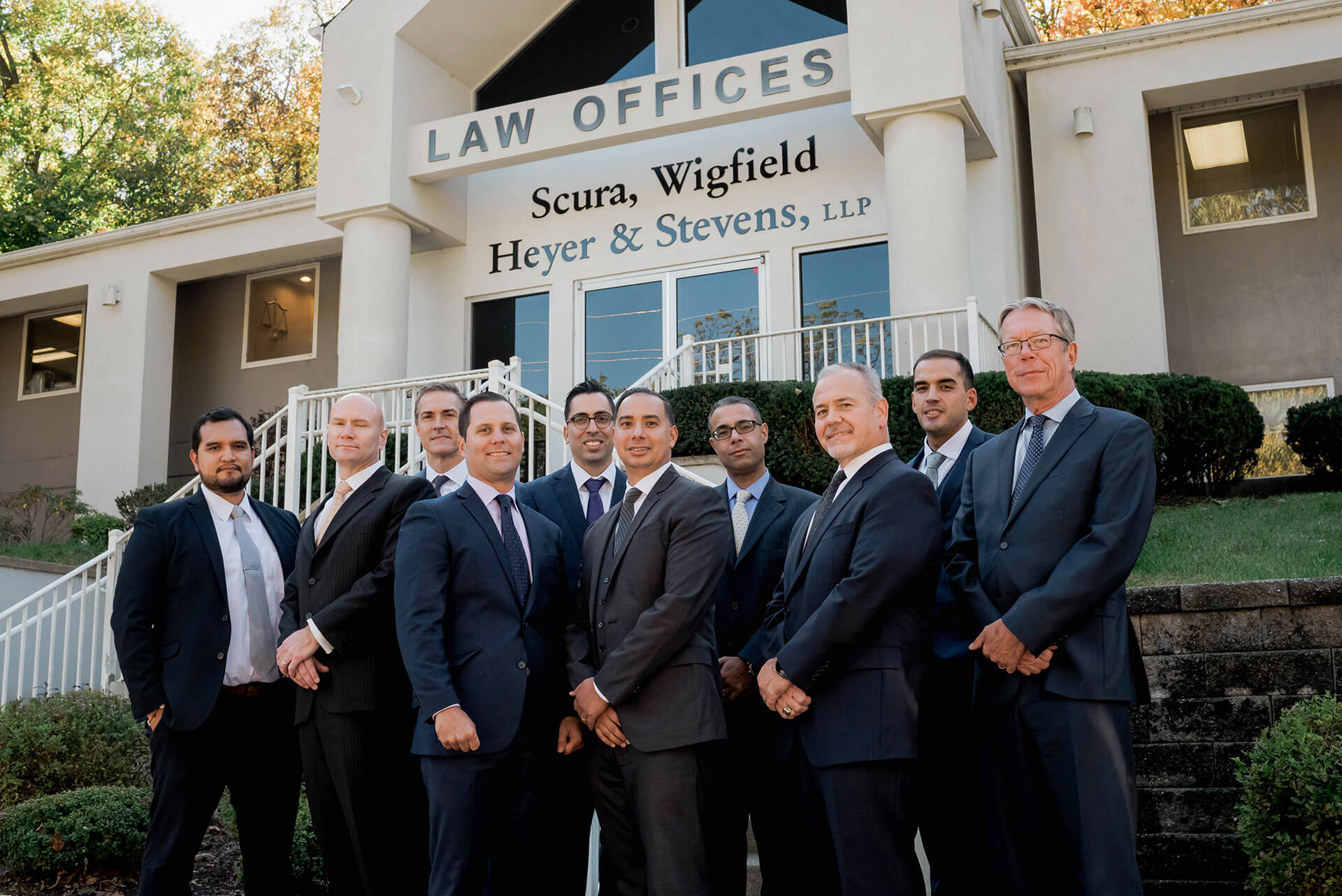
Locations We Proudly Serve
-
Passaic County
1599 Hamburg Turnpike, Suite A
Wayne, NJ 07470 -
Hudson County
50 Harrison Street, Suite 214F
Hoboken, NJ 07030 -
Bergen County
3 University Plaza, Suite 207
Hackensack, NJ 07601 -
Hudson County
1 Harmon Meadow Blvd Ste 201,
Secaucus New Jersey 07094 -
Essex County
One Gateway Center, Suite 2600
Newark, NJ 07102 -
Passaic County
871 Allwood Rd Suite 2,
Clifton, NJ 07012

